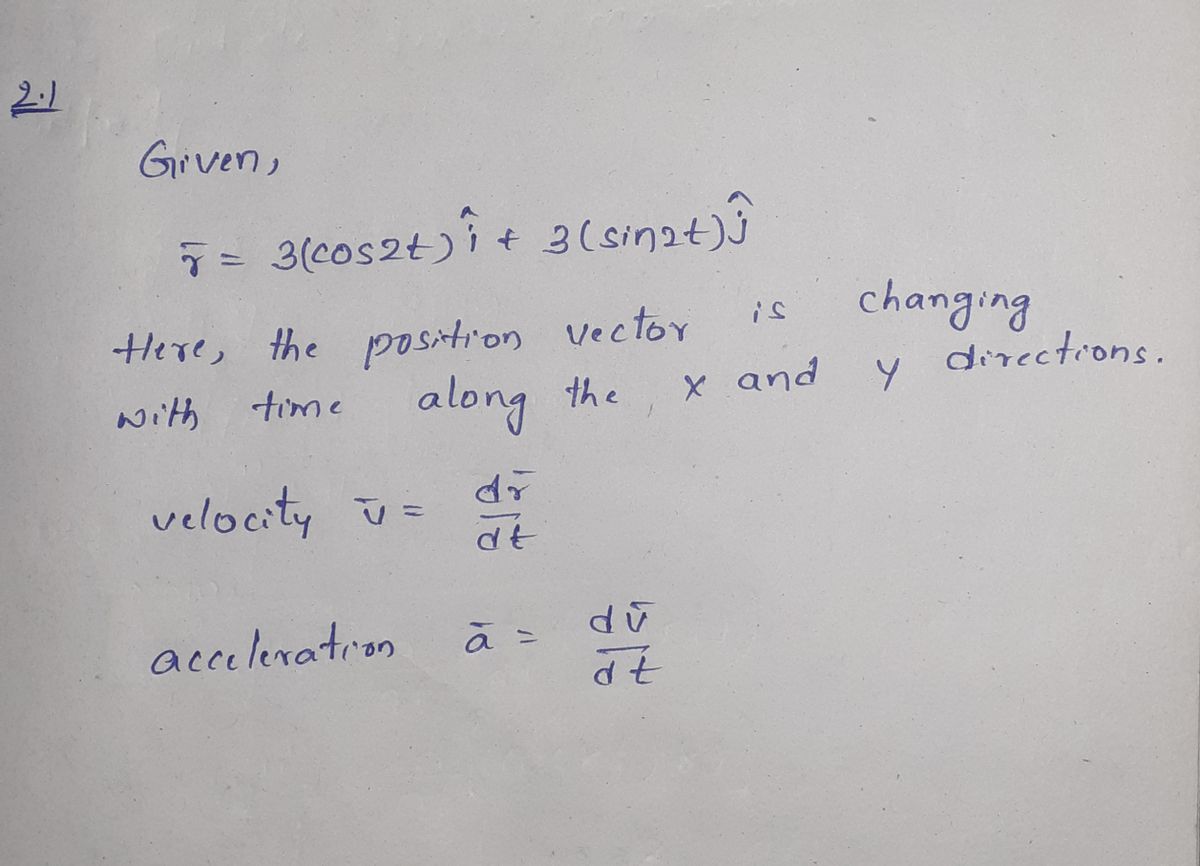2.1 The position vector as a function of time of an object moving along a path is given by F=3cos(2t)î+3sin(20ŷ. 2.1.1 Show that the object moves on a circular path. 2.1.2 Does the object's move with a constant velocity around the circular path. 2.1.3 Show that the magnitude of the object's acceleration is constant and that the acceleration is directed towards the centre of the circular path. 2.1.4 Chadwin, one of the course tutors claims that the object is undergoing uniform accelerated. Do you agree or disagree with Chadwin? Explain your answer.
2.1 The position vector as a function of time of an object moving along a path is given by F=3cos(2t)î+3sin(20ŷ. 2.1.1 Show that the object moves on a circular path. 2.1.2 Does the object's move with a constant velocity around the circular path. 2.1.3 Show that the magnitude of the object's acceleration is constant and that the acceleration is directed towards the centre of the circular path. 2.1.4 Chadwin, one of the course tutors claims that the object is undergoing uniform accelerated. Do you agree or disagree with Chadwin? Explain your answer.
Related questions
Question

Transcribed Image Text:2.1 The position vector as a function of time of an object moving along a path is given by
ř=3cos(21)î+3sin(2tj.
2.1.1 Show that the object moves on a circular path.
2.1.2 Does the object's move with a constant velocity around the circular path.
2.1.3 Show that the magnitude of the object's acceleration is constant and that the acceleration is directed
towards the centre of the circular path.
2.1.4 Chadwin, one of the course tutors claims that the object is undergoing uniform accelerated. Do you
agree or disagree with Chadwin? Explain your answer.
Expert Solution
Step 1

Step by step
Solved in 3 steps with 3 images
